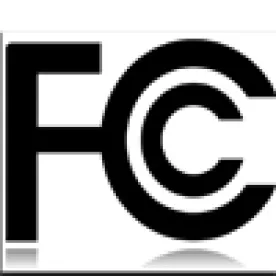Legislative Activity
House Members Introduce Rural Call Completion Joint Resolution
On April 29, Reps. Bob Latta (R-OH) and Peter Welch (D-VT) introduced H. Res. 234, a bipartisan resolution outlining the steps that the Federal Communications Commission (FCC) should take to improve telephone service in rural areas and ensure completion of calls. The resolution asks the FCC to aggressively pursue parties that violate call completion rules and that contribute to poor service quality in rural areas. The resolution further states that no entity may unreasonably discriminate against telephone users in rural areas. The resolution was referred to the House Energy & Commerce Committee (House Commerce Committee).
Anti-Swatting Act Introduced in House
On April 27, Rep. Eliot Engel (D-NY) introduced H.R.2031, the Anti-Swatting Act of 2015. The act proposes to amend the Communications Act to enhance penalties for individuals that falsify their caller identification information to incite law enforcement to respond to a nonexistent emergency, a practice known as swatting. Specifically, the legislation would impose fines on the alleged swatters and would require them to reimburse the emergency service that incurred costs in responding to a false emergency. The bill has been referred to the House Commerce Committee and the House Committee on the Judiciary (House Judiciary Committee).
Bill Affecting Sponsorship Identification Introduced in House
On April 30, Rep. John Yarmuth (D-KY) introduced H.R.2125, the Keeping Our Campaigns Honest Act. The bill directs the FCC to revise its sponsorship identification rules to require the disclosure of the names of significant donors to individuals paying for or furnishing broadcast matter that is either political in nature or involves discussion of a controversial issue of public importance. The act would further require the disclosure of donors behind Super Political Action Committees (Super PACs) and 501(c)(4) organizations that place anonymous ads on the nation’s airwaves. The bill has been referred to the House Commerce Committee.
Senate Bill Protecting Existing Joint Sales Agreements Introduced
On May 4, Sen. Roy Blunt (R-MO) introduced S.1182, a bill that would exempt application of the Joint Sales Agreement (JSA) attribution rule in the case of existing agreements. In March 2014, the FCC adopted a rule that required JSAs, which are financial arrangements between local television broadcasters in which one station sells advertising time for another station, previously approved by the FCC would have to be unwound by 2016. The Senate bill would exempt existing JSAs from the operation of this rule, thereby permitting television stations to maintain their existing JSAs. The bill has been cosponsored by Sens. Barbara Mikulski (D-MD), Chuck Schumer (D-NY), and Tim Scott (R-SC).
This Week’s Hearings:
-
Wednesday, May 13: The Communications and Technology Subcommittee of the House Commerce Committee will hold a hearing entitled “Stakeholder Perspectives on the IANA [Internet Assigned Numbers Authority] Transition.”
-
Wednesday, May 13: The House Judiciary Committee will hold a hearing entitled “Stakeholder Perspectives on ICANN [Internet Corporation for Assigned Names and Numbers]: The .Sucks Domain and Essential Steps to Guarantee Trust and Accountability in the Internet’s Operation.”
-
Friday, May 15: The House Commerce Committee will hold a hearing entitled “FCC Reauthorization: Improving Commission Transparency – Part II.”
Regulatory Activity
Comments Due June 5 in FCC Proceeding to Update Common Carrier Rules
On February 6, the FCC released a Notice of Proposed Rulemaking (NPRM) seeking comment on proposals to update its common carrier rules to “better reflect current requirements and technology by removing outmoded regulations.” The NPRM proposes to eliminate from the FCC’s rules references to telegraph service and eliminate rules from which the FCC has previously forborn, including various recordkeeping and certification requirements, the requirement to provide communications services to foreign governments, rules governing companies’ obligations when recording phone conversations, and rules governing traffic damage claims. Comments on these proposals are due June 5, and reply comments are due June 22.
Comments Sought on LTE-Unlicensed Technology
In a May 5 Public Notice, the FCC sought comment on Long-Term Evolution Unlicensed (LTE-U) technology, a commercial wireless LTE technology that is intended for operation in certain unlicensed frequency bands. According to the FCC, LTE-U could operate in conjunction with licensed commercial wireless services using a technique called Licensed Assisted Access (LAA), whereby a channel in an operator’s licensed spectrum is used as the primary channel for devices operating on an unlicensed basis. Certain groups have expressed concern that LTE-U operations may detrimentally impact existing and future use of unlicensed spectrum. Others have asserted that LTE-U and LAA include features to share spectrum efficiently and fairly and that consumers will ultimately benefit from increased access to spectrum. Comments and information on these technologies are due June 11, and reply comments are due June 26.
FCC Seeks to Refresh the Record in Pole Attachment Proceeding
In June 2011, the National Cable and Telecommunications Association (NCTA), COMPTEL, and tw telecom, inc. (Petitioners) filed a petition for reconsideration (Petition) of the FCC’s April 2011 Report and Order and Order on Reconsideration, which revised the FCC’s pole attachment rules to improve access to poles and reduce costs of infrastructure deployment to accelerate broadband buildout. The FCC now seeks to refresh the record on the Petition. Specifically, Petitioners requested that the rule concerning the calculation of pole attachment rates charged to telecommunications providers be clarified to specify that the cost allocator is applied based on the actual number of attaching entities and not, as Petitioners assert may be the case, applied only according to a presumed number of attaching entities.
D.C. Circuit Vacates FCC’s Decision on Confidential Information
On May 8, the U.S. Court of Appeals for the D.C. Circuit (D.C. Circuit) issued a decision vacating a November 4, 2014 FCC Order that, in order to facilitate speedy consideration of the Comcast-Time Warner/Charter Communications and AT&T-DirecTV mergers, ordered the merger applicants to submit certain proprietary documents (Video Programming Confidential Information or VPCI) and – central to the case – proposed to make them available for examination by other entities in the cable industry. The D.C. Circuit found the FCC’s action substantively and procedurally flawed. The court found that the FCC had failed to make the persuasive showing necessary to disclose petitioners’ confidential documents in that it failed to show why disclosure of the VPCI was necessary to the FCC’s review process. While acknowledging that the VPCI (information regarding the parties’ “business strategies”) was probably central to the review, the FCC had not demonstrated that it was necessary because it was possible that other information, presented in a “less compromising form,” could be sufficient to analyze the merger. As a procedural matter, the court found that the FCC had failed to provide the requisite “reasoned analysis” for its departure from its prior practice of allowing parties to seek a review of a disclosure decision prior to disclosing the information.




 />i
/>i

